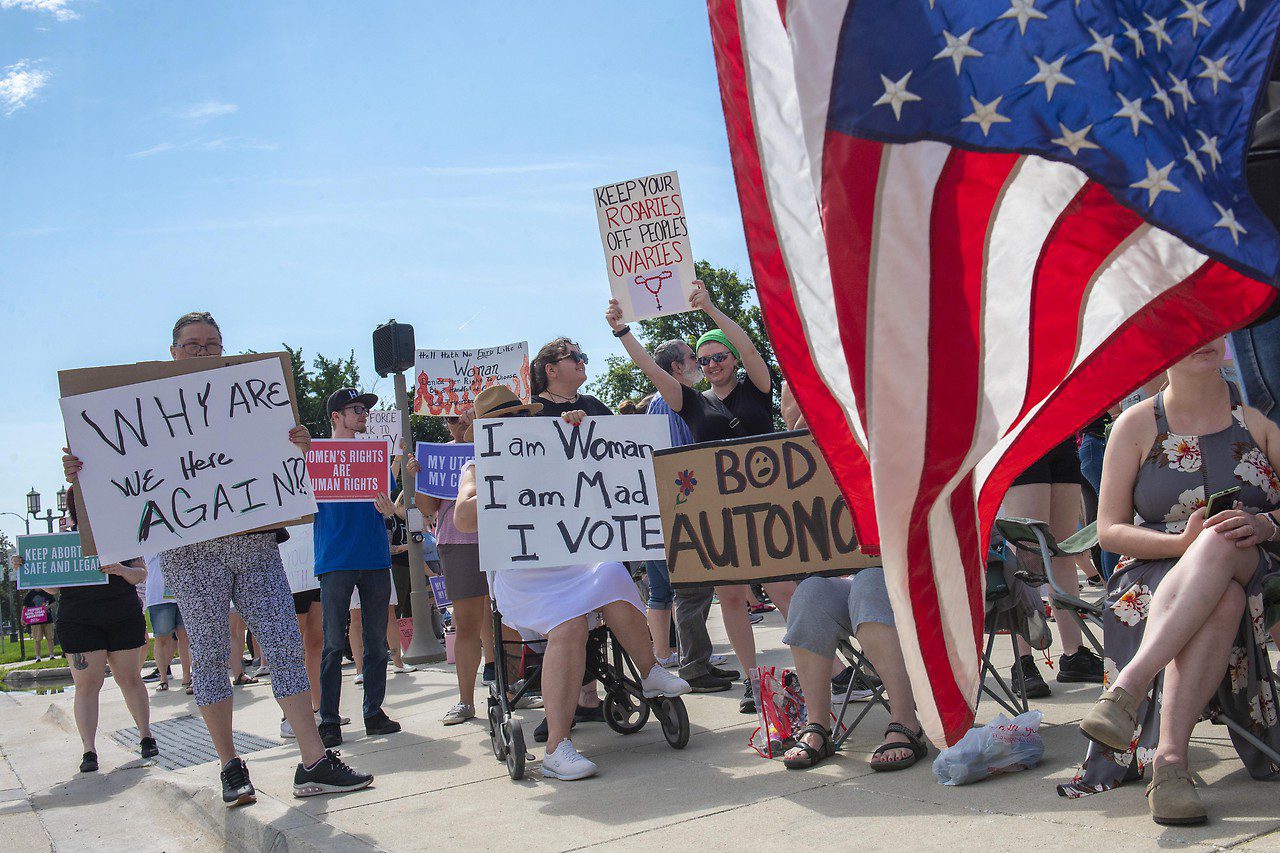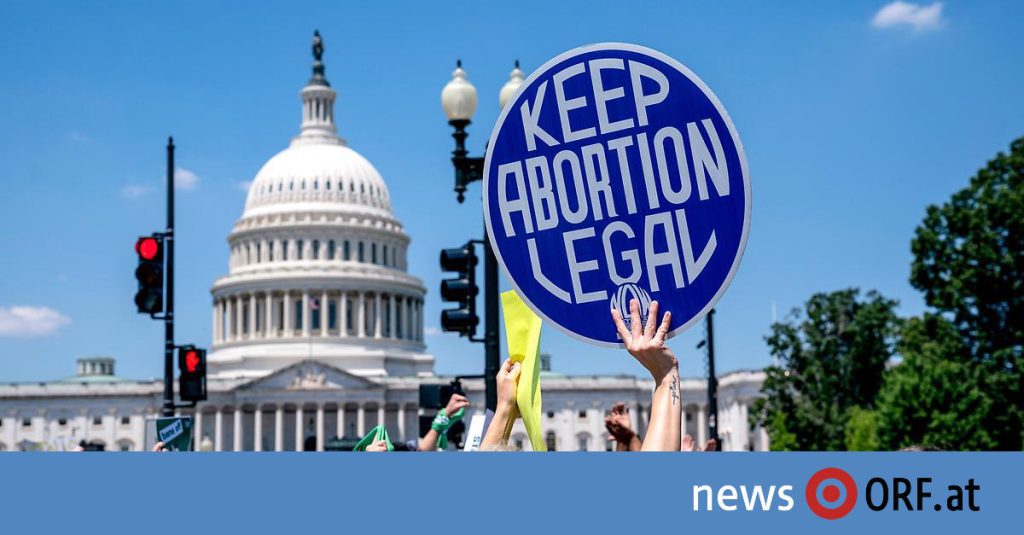On June 24, the Supreme Court handed down the landmark “Roe v. Wade” ruling of 1973, which enshrines a fundamental right to abortion nationwide. The decision caused a political earthquake and is considered a historic turning point: Because there is no federal law on abortion, states have since been able to ban abortions largely or completely.
As a result, many conservative-governed states have begun to significantly restrict access to abortions. Various restrictive measures are in place in Alabama, Georgia, Kentucky, Arizona, and Florida. Indiana became the first state in the United States to enact comprehensive restrictions on abortion access since the landmark Supreme Court ruling.
White House press secretary Karen-Jean-Pierre called Indiana’s action a “devastating move” that followed the Supreme Court’s “extreme decision”. The US Department of Justice has already sued the state of Idaho, which wants to ban abortions even in medical emergencies.
The referendum in Kansas with a surprising result
In the US state of Kansas, on the other hand, voters voted in a referendum 59 percent to 41 percent in favor of preserving abortion rights, which is a surprising defeat for the conservatives. Because the state traditionally supports Republicans — both camps view the referendum as a “first critical test of mood” for the upcoming midterm elections in November, when a majority in the US Congress could be redefined, according to CNBC.
Senate Majority Leader Chuck Schumer and other prominent Democrats said an unexpectedly strong vote to support abortion rights in “red” Kansas is giving their party a boost over Republicans ahead of this fall’s midterm elections. “Last night, the people of Kansas sent an unmistakable message to the Republican extremists MAGA (Make America Great Again): Leave basic women’s rights alone,” Schumer said.

As the first country after the fall of Roe v. Alexis McGill Johnson, president of CNN’s Planned Parenthood Action Fund, said Wade’s vote on abortion rights, Kansas is a model for a path to restoring reproductive rights across the country through direct democracy. “We know that Kansas will not be our last battle, nor will it be our last victory.”
New focus for democratic campaigns
While the outcome in Kansas is limited to just one state, the implications for federal campaign approaches are far-reaching. Democrats once again see themselves encouraged to continue campaigning as a necessary contribution to “a larger fight to restore abortion rights and prevent the dismantling of other liberties,” the Washington Post wrote.
This is also confirmed by current advertising expenditures. Since the Supreme Court ruled in Roe v. Wade, according to The New York Times (“The New York Times”), Democrats earned nearly eight times as much for abortion-related ads, at $31.9 million compared to $4.2 million spent as Republicans — excluding referendum expenses in Kansas. In Alaska, Iowa and Virginia, among other places, new ads about abortion pop up almost daily — hoping to attract independent voters and Republican women as well as their party base.
“Democrats have rarely been presented with an issue on a silver platter so obvious,” Anna Greenberg, a Democratic pollster, told the New York Times. “It turned an election that should have been primarily about inflation and immigration into an election about abortion, too.”
Mixed Republic Strategy
While Democrats are united in trying to win over voters who have concerns about further restrictions on civil liberties, Republicans are divided when it comes to exploiting the abortion debate on the campaign trail. For example, Matt Gorman, a Republican strategist who served as a spokesperson for the Republican National Campaign Committee in 2018, told CNN that Democrats should be pressured with calls for no restrictions on the abortion ban.
However, other Republicans, interpreting the Kansas referendum result as a warning sign, are trying to focus the campaign on rising inflation, for example. “I think our Republican candidates will continue to focus on issues that matter most to voters, and every poll shows that these are the high costs and the economy,” CNN quoted a Republican official running for the House of Representatives as saying.

On the other hand, other Republicans use the abortion debate to make populist promises. Ohio Republican Senate candidate J.D. Vance said in a statement that the decision marked a “new phase” in the anti-abortion movement, with an emphasis on easing the financial burden of raising a family. “We will continue to fight to ensure that every new mother has the resources she needs to breathe new life into the world,” Vance said.
Much is at stake in the midterm elections
In fact, a new nationwide survey by Monmouth University shows that support for Democrats in the general election has declined since June, when the Supreme Court announced Roe v. Wade’s “increased significantly. Biden’s social and climate bills, low gasoline prices, and early signs of slowing inflation are making Democrats more confident about the prospects of the midterm elections, defending a strong majority, according to the New York Times.”
But the Democratic majority in Congress is seen as too fragile, according to Politico’s analysis, and the ruling party’s traditional losses in the midterm elections mean Republicans are well positioned to regain control of the House and possibly the Senate in the fall — which would frustrate much of the slate of Biden’s legislative business for the second half of his four-year term.







More Stories
At least 95 dead in Spain: thousands of people trapped in cars, trains and shopping centres
Will Biden become a burden on Harris in the US election campaign?
Spain: More than 60 killed in the storms